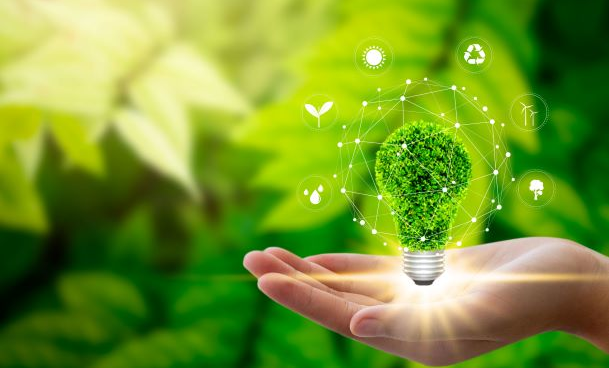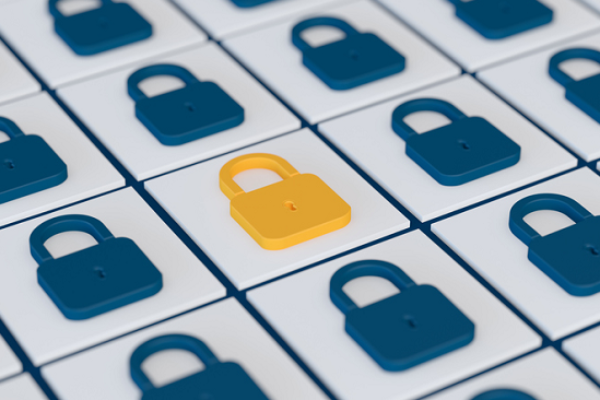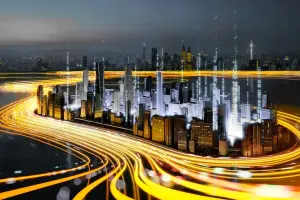Seven key points regarding the World Energy Efficiency Day and how Prosegur is committed to it

Table of contents:
- 6. What mobility-related initiatives is the company implementing?
- 4. What are the EU's energy efficiency targets?
- 7. What can a private individual do to improve energy efficiency?
- 3. What does energy efficiency mean today?
- 2. Since when has there been a concern for energy efficiency?
- 5. What specific actions to increase energy efficiency is Prosegur promoting?
- 1. Since when has the World Energy Efficiency Day been celebrated?
4. What are the EU's energy efficiency targets?
In October 2021, the Alliance to Save Energy (ASE) proposed a series of specific actions to reduce energy waste and carbon emissions. Some of these actions, such as using natural light and cooling wherever possible or using LEDs (which consume up to 90% less energy) instead of conventional lamps or lightbulbs, are a matter of common sense. Others, such as avoiding as much as possible the use of water heaters, which are responsible for 19% of household energy consumption, or using a power strip with an on-off switch to power off multiple devices at once and thus decrease electricity use, require a certain discipline, small daily sacrifices or smart consumption habits. And lastly, ASE also recommends using the services of an efficiency expert, applying for public grants and subsidies to shift your home to renewable energy, investing in thermal insulation and, above all, actively expressing your green commitment and support for sustainability policies both by voting and in public debates and citizen participation processes. In the words of the organisation: "It is urgent and it’s everyone's job. It is also yours".
Originally, it was an economic and geopolitical concept that was primarily concerned with promoting a frugal use of energy. In recent decades, efficiency has been primarily about promoting renewable energy sources and reducing the carbon footprint. Commitment to the environment and a firm commitment to the future of the planet have gradually replaced geostrategic concerns.
Since the 21st World Climate Change Conference, which was held in Paris in 2015, the world has had a clear and precise roadmap to bolster decarbonisation and combat global warming. The aim of this international commitment, signed by 191 countries and known as the Paris Agreement, is to limit the average increase in temperatures to a maximum of two degrees Celsius by the end of the 21st century.
7. What can a private individual do to improve energy efficiency?
As the world's leading economy and the group of countries with the best Human Development Index (HDI), the European Union has taken on the responsibility of leading the fight against climate change with more demanding and ambitious environmental commitments than those stipulated in the Paris Agreement. The EU framework foresees the EU becoming climate neutral by 2050. To achieve this, an overall plan has been drawn up with intermediate steps known as the Europe 2030 Targets. These are a series of lines of action inspired by the 17 Sustainable Development Goals (SDGs) of the United Nations, the target of which is that the EU will cut carbon dioxide emissions by at least 55% by 2030, compared with 1990 levels.
As part of its Sustainability Master Plan 2021-23, Prosegur has implemented an efficient lighting programme that aims to replace all its traditional lighting with LED solutions. The Madrid-Vicálvaro branch in Spain has been a pioneer in this initiative, which will enable a 30% reduction in total energy consumption. At present, a second phase has already begun, the objective of which is to install new efficient lighting in 19 offices in Spain and Portugal, which will reduce the carbon footprint by 35%, reduce electricity consumption by 50% and have an environmental impact of 225 tonnes of CO2. Another ambitious initiative with considerable potential is the installation of photovoltaic solar panels. The latter initiative began to be implemented in 2020 in 15 of Prosegur Cash's branches in Brazil and was subsequently rolled out across Europe in mid-2021. It is expected to reduce carbon dioxide emissions by approximately 348 tonnes and to self-generate 15.4% of the overall energy demanded.
3. What does energy efficiency mean today?
2. Since when has there been a concern for energy efficiency?
24 years ago, in March 1998, the first International Meeting on Energy Efficiency was held in Austria, an event that received rather little media coverage at the time. The summit approved a series of strategic recommendations to increase the sustainability of everyday actions of companies, administrations and private individuals, which included, for example, the use of light emitting diodes (LEDs) in place of conventional lamps or lightbulbs. Among the event's proposals was that 5 March should become World Energy Efficiency Day, which became effective as of 1999.
The first government and business initiatives to drastically reduce energy consumption took place in the 1970s, coinciding with the Arab OPEC oil embargo to the West of October 1973. At that time, what we know today as energy efficiency was called "resource conservation". The so-called "conservationist" line prevailed especially in the United States, Great Britain and the Netherlands, the three economies that were the hardest hit by the embargo. In 1977, the US Congress established the Department of Energy, an institution that from the outset promoted measures, such as optimising natural light, insulating homes and turning off thermostats, which are still common today.
In recent years, energy efficiency policies have focused particularly on the sustainability of transport and vehicle fleets. Prosegur is renewing its heavy and light fleet in line with the Euro VI mobility standard. This involves a significant increase in the number of vehicles in the ECO environmental category, particularly hybrids and fully electric vehicles. Three years ago, the implementation of a new shared fleet model was launched in Spain, allowing users to reserve environmentally friendly vehicles by time slot. In 2021, two pilot programmes have also been developed to improve the environmental impact of the company's fleets; one to research and manufacture lighter materials for armoured vehicles and the other to use environmentally friendly LPG (liquefied petroleum gas) engines in these vehicles.



.jpg)
.webp)
